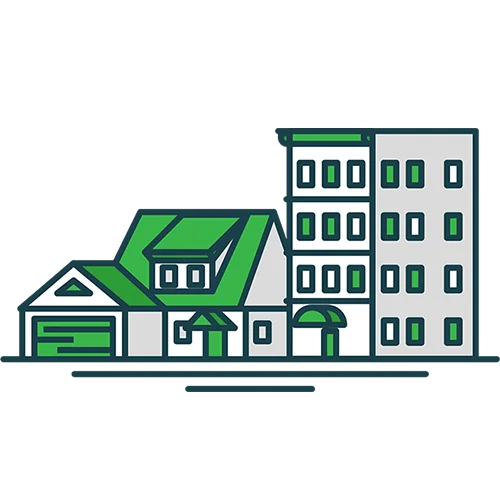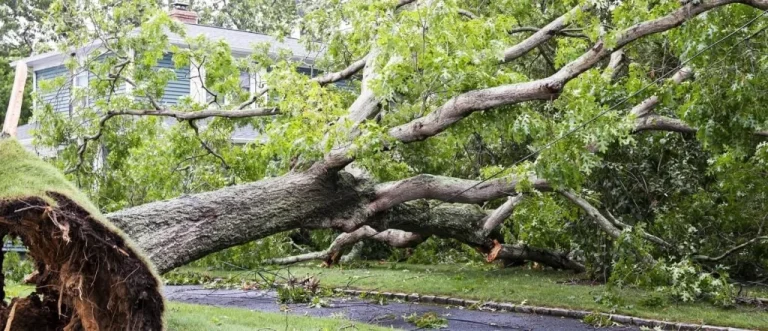So you’re researching home insurance and just about got the hang of everything. Then you come across terminology that talks about insurance endorsements. Suddenly, everything is going over your head, and you feel like you’re out of your element.
Take a deep breath — and maybe a few steps back. Defining most insurance terms is a lot simpler than they sound. Keep reading, and we’ll tell you what homeowners insurance endorsements are, why one may want a policy endorsement, and how to get an insurance policy endorsement.
What Is an Endorsement in Insurance?
An insurance endorsement is simply an addition to your current home insurance policy that raises your coverage limit or extends coverage for specific categories. These categories can extend to jewelry, sinkholes, identity theft, and a slew of other categories for which you don’t have coverage or want to raise your coverage limit.
Endorsements are found in almost all home insurance policies, including homeowners, renters, condo, and landlord insurance. They may also be found in flood insurance. They’re designed to allow insureds to change certain aspects of their coverage without canceling their current policy and signing up for a new one.
Let’s look at an example. A common form of endorsement is for sewer and drain backup. Many home and flood insurance policies don’t come standard with sewer and drain backup coverage, which protects your home and personal property if a storm causes the sewer system or pump to stop working and results in water damage.
In this case, adding an endorsement will save you tons of money in the long run — plus, it’ll typically only run you an endorsement premium of $50 for an entire year. As we like to say, better safe than sorry.
How Do Homeowners Policy Endorsements Work?
As mentioned above, endorsements on an insurance policy can be added to extend coverage to items or systems that a standard insurance policy may not fully cover. Most endorsements fall into two categories: scheduled personal property or exclusions.
Scheduled personal property endorsements cover items in your home valued at a cost that exceeds the coverage provided by your homeowners insurance policy.
Exclusion endorsements provide coverage for perils that are usually not named on a standard home insurance policy. The named perils on average insurance policies are often the common reasons for home insurance claims, like fire, theft, or damage caused by freezing.
Understanding Insurance Endorsement Premium Increases
Adding an endorsement to your policy usually will not raise your premiums too much, but it does cost extra. One endorsement will typically add, at most, $100 to your premium, but in many cases, one endorsement will add about $50 to your premium.
Depending on your home insurance policy and the factors that determine your premiums, like the age of your home, location, or whether you opt for actual cash value or replacement cost coverage on your policy, your endorsements may raise or lower your premiums.
However, many endorsements have low or no deductibles, so in the event of a covered peril, you won’t have to reach too deeply into your pocket before your insurer helps you cover the cost of your damaged or stolen item(s). It’s always a good idea to talk to your insurance agent before modifying your insurance policy.

It’s Time to Switch Your Homeowners Insurance
We partner with the nation’s top homeowners insurance companies so you can get a custom policy at an affordable price.
List of Insurance Endorsements Commonly Added to Policies
The average homeowners insurance policy comes equipped with extensive coverage, but there are some items or perils that your policy will not cover. Homeowners insurance endorsements can add coverage to high-value items or cover your home against perils not listed on your policy. Listed below are examples of common endorsements in insurance policies.
1. Electronics
Some electronics may be covered on your standard home insurance policy. However, if you have electronics of value exceeding the coverage your policy provides, you may want to add an endorsement for these electronics.
These electronics might be expensive TVs, music equipment, or any combination of expensive electronic items that, when combined, exceed the personal property coverage limits of your standard policy. Electronics are considered a scheduled personal property endorsement.
2. Jewelry
While your standard home insurance policy may cover some of your jewelry, if you have high-value pieces, it may not cover the entire cost if you need to file a claim to replace them. For example, some people will add an endorsement to their policy to cover their wedding ring.
With a traditional policy, your jewelry will only be covered if stolen, but with an endorsement, you are covered for other perils. You may have to schedule each piece with a floater policy if you have multiple pieces of costly jewelry. Jewelry is considered a scheduled personal property endorsement.
3. Furs
Similar to jewelry, furs will be covered on your standard home insurance policy, but your policy limit may not cover the cost of one fur, let alone multiple. Furs are typically only covered against theft on a standard home insurance policy. With an endorsement, you can insure all your furs against any type of peril your insurance company covers. Furs are considered a scheduled personal property endorsement.
4. Collectibles
If you are a collector, you may have many valuable pieces you need to be insured. Collectibles are typically treated similarly to jewelry and furs in that they are covered by a standard insurance policy, but usually to a low limit. You can schedule an endorsement on your insurance policy to cover your collectibles. Collectibles are considered scheduled personal property endorsements.
5. Boats and Other Watercraft
Typically, boats and other watercraft are not protected once they are on the water or otherwise not on your property. An endorsement on your homeowners insurance policy to cover your boat or other watercraft will provide liability coverage if your vehicle exceeds 25 mph.
Boats and other watercraft are considered a scheduled personal property endorsement. However, if they’re not, you’ll have to get a separate boat insurance policy to cover them.
6. Yard and Garden
If you take great pride in your yard or garden or have costly lawn equipment, you may want to get an endorsement on your homeowners policy because a standard insurance policy does not cover most yard and garden items. These types of endorsements typically have limits by cost or by item.
If you have a few things you prefer to be covered over others, you can schedule a policy endorsement on your favorite tree, your top-of-the-line lawnmower, or your beloved rose bush. Yard and garden coverage is considered a scheduled personal property endorsement.
7. Sewer and Drain Backup
If you have closely read your homeowners insurance policy, you may have noticed several things that could damage your house that your policy does not cover. Sewer and drain backup may be an issue for you if your home has old pipes, is located near large tree roots, or your zip code often experiences freezing. Sewer and drain backup is considered an exclusion endorsement and will cover water damage to your home or items caused by a backup.
8. Sinkholes
If you live in Florida or another state that is particularly susceptible to sinkholes, you may consider adding a sinkhole endorsement to your home insurance policy. Most home insurance policies have a degree of sinkhole coverage, but the sinkhole has to meet certain criteria.
With a sinkhole endorsement, your home and the items within it will be covered by a sinkhole regardless of its specifications. Sinkholes are considered an exclusion endorsement.
9. Earthquakes
Earthquakes are commonly excluded from your typical home insurance policy because of the immense damage they often cause to homes. If you live in a state that is particularly susceptible to earthquakes, you may want to add an earthquake endorsement to your home insurance policy. Earthquakes are considered an exclusion endorsement.
10. Assisted Living Care
An assisted living care endorsement is rare, as few insurers offer it. This endorsement will help to cover expenses for assisted living care for a family member related by blood, marriage, or other official documentation to the policyholder. In some cases, adding this endorsement to your policy may also help cover the costs of medical items like wheelchairs, hearing aids, and other items of that nature.
11. Identity Theft
There isn’t much your insurance company can do to help protect your identity, but they can help with the expenses that follow identity theft. With an identity theft endorsement, your insurer may be able to help cover the costs of a lawsuit, fraudulent funds you may owe to your bank, or other expenses you may accrue due to identity theft.
If you come to find out you don’t have adequate coverage for your home, belongings, and events that life could potentially throw your way, don’t worry. Adding endorsements to your insurance policy can help you get more coverage on the things you already have and extend coverage to things you don’t. That means you probably won’t have to cancel your current policy, and you’ll only have to pay for the extra coverage you need.
How to Add an Endorsement to Home Insurance
Getting endorsements is as easy as calling your insurance agent and adding them over the phone. You must be one of the named members of the policy to make an addition, though.
While most big-name insurers offer the common types of endorsements, you may find your current provider does not offer the endorsement you need. In that case, it may be a good idea to switch your home insurance policy to get the exact coverage you need.
If you need to shop around for a new policy, you can do so in a few different ways. You can get and compare quotes over the phone with an agent, in person, or online using a free quoting tool like the one we offer right here at Clovered. Simply input your information, and you will receive a free quote in minutes for the coverage you need at the price you want.
Homeowners Insurance Standard Coverage vs Endorsements
Most standard insurance policies include personal property coverage covering many things for which you could get an endorsement. However, the personal property limit on your standard insurance policy may not even cover half of the replacement cost for a valuable item like jewelry or a boat, let alone a collection of high-value items. This is why people add endorsements to their policies to cover their high-value items.
Homeowner insurance endorsements can be added onto most standard homeowners insurance policies to provide extra coverage for your valuables. While you can have a home insurance policy without endorsements, you cannot have coverage provided by endorsements without having a homeowners insurance policy.
What Is an Insurance Policy Endorsement vs Rider vs Personal Property Floater?
Endorsements and riders are the same, so don’t be alarmed if you hear either term interchanged. Endorsements and riders are strictly used in property and casualty insurance, so your home and flood insurance policies are likely the only places you’ll hear these terms pop up.
A scheduled personal property floater is simply an addition to your current insurance policy that raises your coverage limits or extends coverage to specific items. Floater additions get their name because policyholders can, essentially, float more coverage to items like a diamond ring, expensive gold necklace, or many other valuable items.
The editorial content on Clovered’s website is meant to be informational material and should not be considered legal advice.




